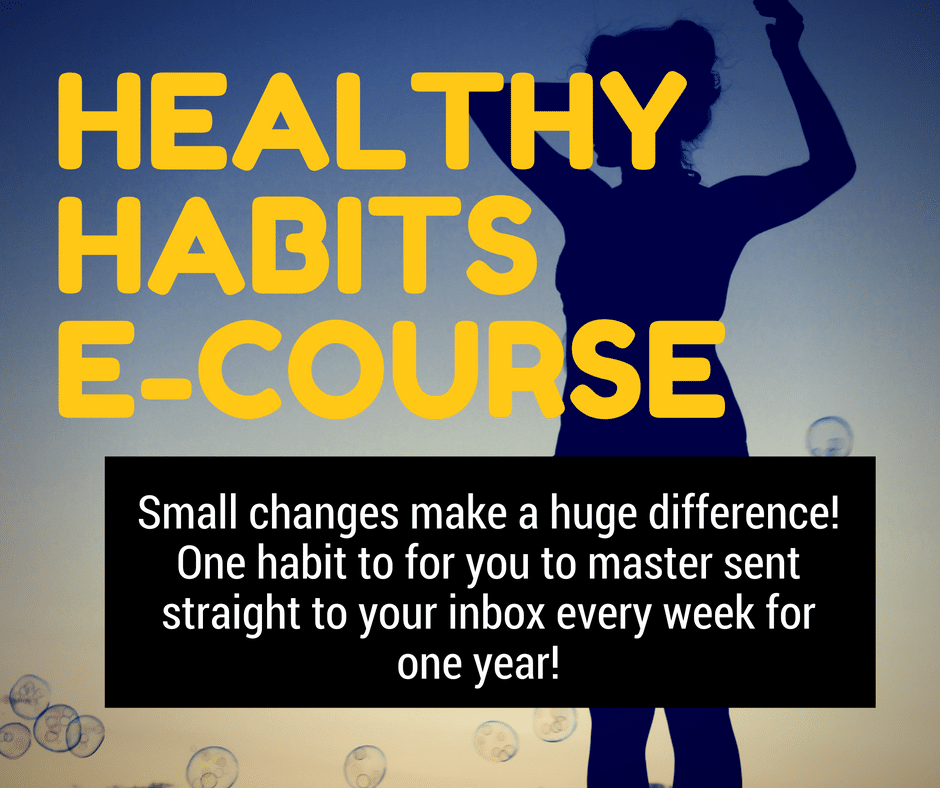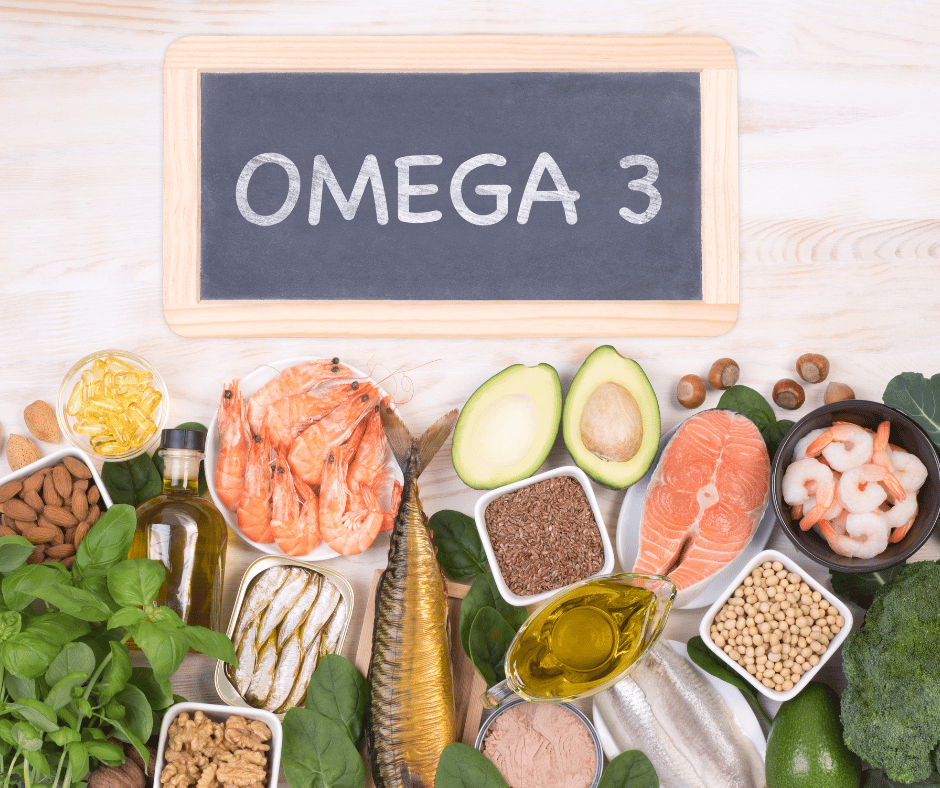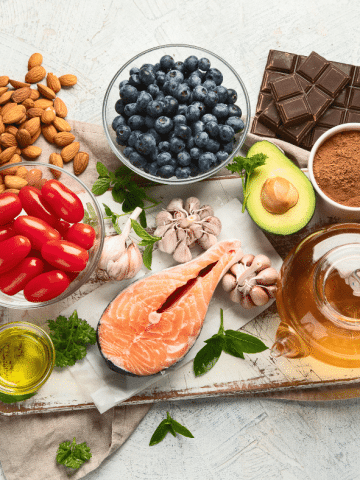My top 10 nutrition tips that add to your diet instead of subtracting. These tips will take you 80% of the way to optimal nutrition!
Hi, friends! I wanted to pop in today with my top ten nutrition tips! These tips will make an 80% difference in your nutrition game. I always start with these tips with my clients because I know they will make the most significant difference in how they feel, from energy to mood to sleep quality, body composition, and more. Some you may be super great at, some may not work for you, but others could be something you could start working on today!

So if you decide that the diet you started or are planning to start is too restrictive, not working, or you don't want to do it anymore, instead, try focusing on 1-2 of the ideas below every couple of weeks until you do all ten consistently. I promise you'll see a huge difference!
1. Drink Half Your Body Weight In Fluid Ounces of Water

Why? Every cell in your body requires enough fluid to carry out its processes optimally. Even slight dehydration increases fatigue and decreases work capacity.
What does that mean? Even slight dehydration will mean you will have less energy to work out, cook, clean, and live. You will also not perform optimally in your workout.
Remember! The more water you drink, the less your body will feel the need to hold onto it! Only count up to 1 cup of unsweetened teas or coffee as water consumption.
Drink that water, friends! And if you suck at drinking water, I can relate. More tips here!
2. Aim for 2 Fistfulls of Non- Starchy Veggies Per Meal
Why? Non-starchy veggies are packed with fiber, antioxidants, nutrients, and hydration.
What does that mean? You'll have better digestion, feel fuller for longer, and naturally create calorie control. You'll also get the best multivitamin in the world as you'll absorb all the nutrients from food and fight inflammation in every bite.
Remember! Your fist is proportionate to your body, so it's the best measurement for you! We want to get to 4-6 fistfuls per day for ultimate nutrition! All veggies count as non-starchy except corn, peas, and potatoes.
More tips to get more veggies are here!
3. Get Enough Protein, At least 20+ Grams Per Meal
Why? Almost every human body tissue is made up of protein, like skin, muscle, organs, hair, nails, and pretty much everything. Sure, fat plays a role, but not to the extent that protein does. Protein also stabilizes blood sugar and boosts metabolism by requiring more calories in digestion and preserving muscle mass.
What does that mean? You'll feel fuller for longer and have better energy if you get enough protein per meal. Not to mention, it's easier to maintain or lose weight with adequate protein.
Remember! How much protein you need depends on your activity level, age, gender, and health status (some health conditions require low-protein diets.) For most healthy, active individuals, 1 gram per pound of ideal body weight is good! At a minimum, most healthy people need at least 25 grams (female) and 40 grams (male) per meal AND snack.
Find a list of the best protein sources here and how to get enough!
4. Most Importantly! Get Enough Protein At Breakfast!
Why? In the morning, your cortisol (stress hormones are naturally highest) and many life stressors can push this higher, increasing blood sugar. Protein stabilizes your blood sugar.
What does that mean? If you don't have enough protein at breakfast, you'll experience the blood sugar roller coaster from the beginning of the day. What goes up must come down (even within average), and when it drops too low, you crave fast energy sources like sugar and carbs. Protein stabilizes your blood sugar, reducing cravings throughout the day and creating stable energy!
Remember! Breakfast MUST have enough protein. It should be priority number ONE when it comes to nutrition! See above for how much.
Helpful links:
- 20 Low Carb High Protein Breakfast Ideas
- 15 High Protein Vegetarian Breakfast No Eggs
- 5 Quick High Protein Breakfast Options You Can Take On Your Go
- 18 Unique and Delicious High Protein Smoothies
- How to Make A Healthy Breakfast
5. Chose High-Quality Carbs
Why? High-quality carbohydrates have more protein, fiber, and nutrients than refined carbohydrates.
What does that mean? You get more out of high-quality carbohydrates than you do more processed carbohydrates. They will keep you fuller for longer and in the right amounts and be anti-inflammatory or neutral.
Remember! The least processed forms of carbohydrates are the best. If it still looks like it came from the ground relatively recently, it's probably more nutrient dense than if it doesn't. Think baked potato vs. potato chips. You can find more about how to spot a high-quality carb in this post!
6. Be Carb Responsible
Why? Carbohydrates provide the body with energy. Unlike proteins and fat, there isn't a single structure in our body that needs carbohydrates to build the cell or tissue. However, every cell does need energy in the form of sugar, the molecule that all carbohydrates eventually break down into. This means it's our job to match our carbohydrate needs with intake, probably more than any other macronutrient.
What does that mean? Too many carbohydrates and your body doesn't need the fuel, so it starts storing excess intake as fat. Not enough carbohydrates and you feel tired and lethargic. The exception is in weight loss. We can get away with fewer carbohydrates because the body will burn fat for fuel. But as you get closer to your goal weight, you typically need more carbohydrates, not less.
Remember! I didn't say NO carbs. I said carb responsible. It's much easier to be carb responsible if you get enough non-starchy veggies and protein. SO MUCH EASIER! Focus on adding enough of those and not just dropping your carbohydrates. Typically people only overeat carbohydrates when they aren't eating enough protein and veggies. You can easily modify any high-carb meal to include the carbs you love and more protein and veggies.
7. Get Enough Omega 3 Fats
Why? One of the most potent ways to fight inflammation is foods rich in Omega 3 fatty acids. Omega 3 fatty acids break down into anti-inflammatory compounds that send signals throughout our body to reduce inflammation. More about anti-inflammatory foods here.
What does this mean? You'll want to be smart about including enough omega-3-rich foods in your diet, and for most people, I recommend supplementing with high-quality fish oil daily.
Remember! Omega 3's fight the inflammation created by exposure to chemicals, additives, preservatives, omega six oils, and more. A list of Omega 3 Foods and how to get enough can be found here!
Here are some recipes:
- Chimichurri Salmon
- Honey Chipotle Salmon
- Honey Dijon Cedar Plank Salmon
- Lemon Dill Garlic Herb Butter Salmon
- Sweet and Spicy Salmon and Veggies
- Barbecue Salmon Foil Packets
- Trader Joe's Broccoli Slaw Recipe
8. Create Variety and Rotation In Your Diet
Why? Each unique food, whether almonds vs. walnuts or apples vs. oranges or whatever, has a fantastic set of nutrients, antioxidants, and phytochemicals that will benefit your body.
What does this mean? Most people get hung up on trying to eat the healthiest nut, fruit, veggie, protein source, etc. You should be rotating throughout the week, seasons, and grocery trips. For instance - I try not to have the same protein source twice a week. I try to buy a different type of nut or butter each week. And I try to gravitate toward fruits and veggies that are in season to ensure throughout the year. I get the nutrition from all of them.
Remember! Variety keeps you engaged in what you are eating and provides optimal nutrition. However, it can also be intimidating for those of us who are creatures of habit! Do your best, but don't obsess!
See these posts with healthy grocery lists for ideas!
9. Take The Right Supplements
Why? We live a fast-paced life in modern society. Unless you are living on a farm homestead devoting all your time to raising your food, and are immune to the outside stressors of the world, you will never be 100% on nutrition. Nor would I want you to be. I want you to enjoy meals out with friends, foods with refined carbohydrates, drinks, whatever, 20% of the time.
What does this mean? You can create an insurance plan for optimal nutrition and nutrient intake with the right supplements.
Remember! You should think of your supplements in the following categories.
- Forever - things like a good quality multi and fish oil fall into this list.
- 3-6 months for short-term support while you treat the root cause of the underlying condition.
- 6-1 year for short-term support while you treat the root cause of the underlying condition.
I'm a big fan of supplements in my private practice - I use them for hormone health, cardiovascular support, GI healing, and a million other reasons. But, the idea is that they are short-term while we get to why you need them in the first place - usually around lifestyle, diet, and GI integrity. You shouldn't be on the same adrenal supplement (or any other) for years without retesting, adjusting, and trying to get to the root cause of the issue in the first place.
10. Get Enough Sleep
Why? This may not seem like a nutrition tip, but when you don't get enough sleep, your body will try to get energy in other ways, most often by craving fast-acting carbohydrates and calories overall.
What does this mean? You'll have fewer cravings and generally eat fewer calories if you sleep enough!
Remember! Sleep affects every cell in your body! You are fighting an uphill battle if you don't get enough sleep or your sleep isn't good quality!
What's the Other 20%?
If these tips take you 80% of the way, how do you get to 100%? That's where personalized nutrition comes in—looking at things like genetic risk, DNA methylation, family history, current health status, gut health, hormone health, cycle syncing, etc. Those personalized tweaks get you even past 100%. But those things don't do anything without the list above being in line first. You can spend all the money you want on a personalized plan working with someone like me in functional and integrative nutrition, but if you aren't doing the abovementioned things, you won't get very far!
I hope these tips help! And if you want more tips like these every week in your inbox, consider my 52-week healthy habits series!

Check out my meal plans tab if you need help with meal planning!








PRIYANK says
Loved these tips—simple, realistic, and actually doable! I’ve found that just focusing on eating more whole foods has made a big difference for me. I recently wrote about some of the underrated benefits of whole foods if anyone wants to check it out: https://ultimatehealthjourney.com/the-amazing-benefits-of-eating-whole-foods/. Always cool to see how small changes can have such a big impact!